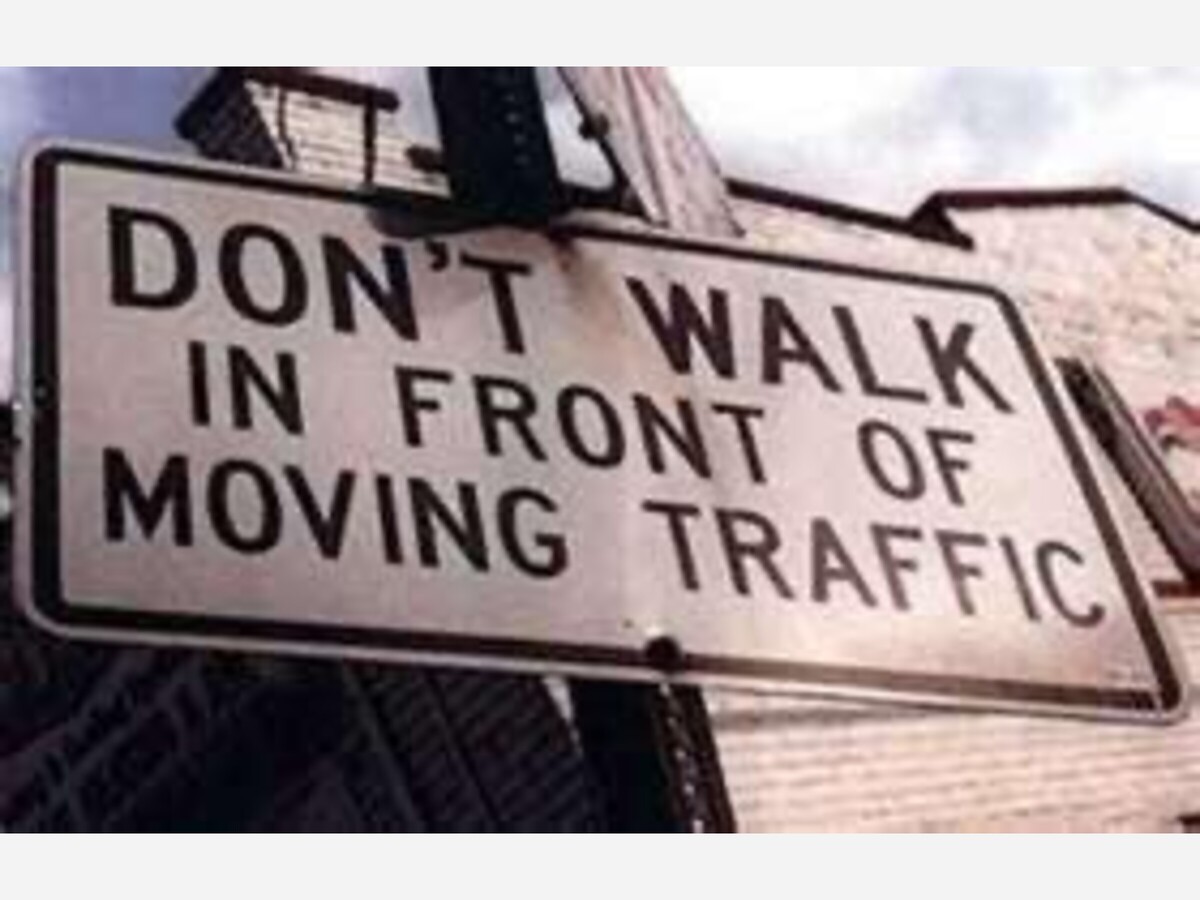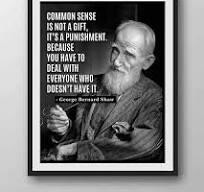Image

What is common sense, other than the title of Thomas Paine's historic pamphlet "Common Sense”? It was pure genius, based on common sense (but also logic and facts) calling for freedom, independence and democracy. My little plea does not compare to Paine’s efforts or impact. My little plea here was originally written in 2012, but certainly is more applicable now than 10 years ago.
Common sense (and logic) has become less common, and the obstacles to it more prevalent. Would it were possible that my effort could inspire an awakening of some kind to make common sense more common! Not holding my breath! Read on! Common sense may be thought of as intuitive and practical, a form of simple insight needed in the moment. Can it be learned or taught, or is it something that just comes naturally to some lucky people? Have you ever heard anyone say, “You don’t have the sense you were born with.”? Maybe we are born with it, but over time are not encouraged to use it—maybe through aspects of our upbringing, sometimes formal education and now, the most likely culprit, social media, which may entirely attract and distract us so as to leave no room or inclination for any kind of thinking—let alone common sense.
Common sense is not the same as critical thinking, which is a process, beginning with being open and objective (letting go of pre-conceived ideas and opinions). It may involve fact checking, researching reliable sources, understanding context, and addressing other valid points of view, all of which are also sorely missing these days—even suspect at times! So, depending on the situation at hand, more may be needed than common sense, for example in the proverbial references to rocket science and brain surgery. Although in any situation, even complex and critical ones, common sense can be (and should be) an integral piece of planning and implementation.
Some may think that common sense is the same as a “gut" feeling. I think gut reactions can be way off base and have more to do with emotion and conditioning rather than common sense. True, both are immediate responses, but common sense involves a keen capacity for observation and on the spot association for practical approaches and/or solutions. Common sense is just what may be needed to hear and consider at a given time.
Anyone who has been around children has experienced their often natural common sense. A relevant example for me happened when I was visiting my young grandson, who lives a distance from me. I said to him, “I will be leaving tomorrow, and I feel sad I won’t see you for a while.” He immediately said, “It’s not tomorrow now.” Not only was it a practical insight, but also a lesson to me that the present moment was to be enjoyed without looking back or ahead.

At times, formal education may not foster common sense. It often has formulated questions with correct answers. Did you ever read or have to respond to those questions at the end of chapters in text books or novels, which supposedly help “direct” us? Wouldn’t it be better to have readers formulate their own immediate responses and questions. Standardized testing, which has been the main gauge of students' college application (although this may be changing) is also another area where common sense answers may be valid, but not “correct.”
Students with imaginative minds who don't think in straight lines or have preconceptions are likely to respond with common sense. A student of mine once answered a sample question on a standardized test without looking at the multiple choices. “What do red and blue have in common?” The correct answer was, “They are colors.” The student said, “They make purple.” Not the answer indicated, but certainly a common sense, associative thinking response and valid. True those standardized tests are well thought out and based on—well, not sure what, but I would guess possible common sense choices are not considered in their creation.
After hearing a particularly lyrical poem read, another student said, “It is kind of like algebra.” He couldn’t say how, but I felt he must have had a sense for the “equation”of the rhythm, meter, accents and other features—all coming together. It seemed like a revelation to him, and he found a way to appreciate the poem, and perhaps poetry itself. Brilliant!
We must consider the media’s and social media’s roles in forever deleting common sense from our menu of options. While there is entertainment and informational value in them, our screen or listening time can become obsessive, addictive, and be providing uncommon sense misinformation, conspiracies and accusations which have no evidence or basis in fact. Using the sense we were born with can help sort out what is real, true, probable, likely, impossible, and prevent us from becoming a,“Tell me what I already know and want to hear or see” audience.
It may seem hopeless at present, but common sense is probably not something that can be totally annihilated. Let’s hope so, and look for, use, encourage and affirm common sense whenever and wherever we can.
If we realize how important common sense is (how obviously missing it is), maybe we would, as the American colonists did, do something about it—to our benefit and the benefit of others.
Here ends my very own little prose “pamphlet,” attempt to express the need for Common Sense.
Sandra Williams shares her inspirations. A writer of poetry, essays and short stories, she believes writing is both therapeutic and enlightening— “When become aware of what inspires us, we expand our imagination and tap into our intuitive selves.” She collaborates with her husband, Robert, local landscape and mural painter, promoting community arts. She is the author of the historical novella, Moss on Stone and Time and Tide: collection of Tales.